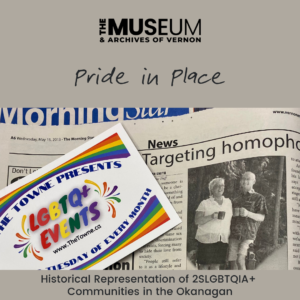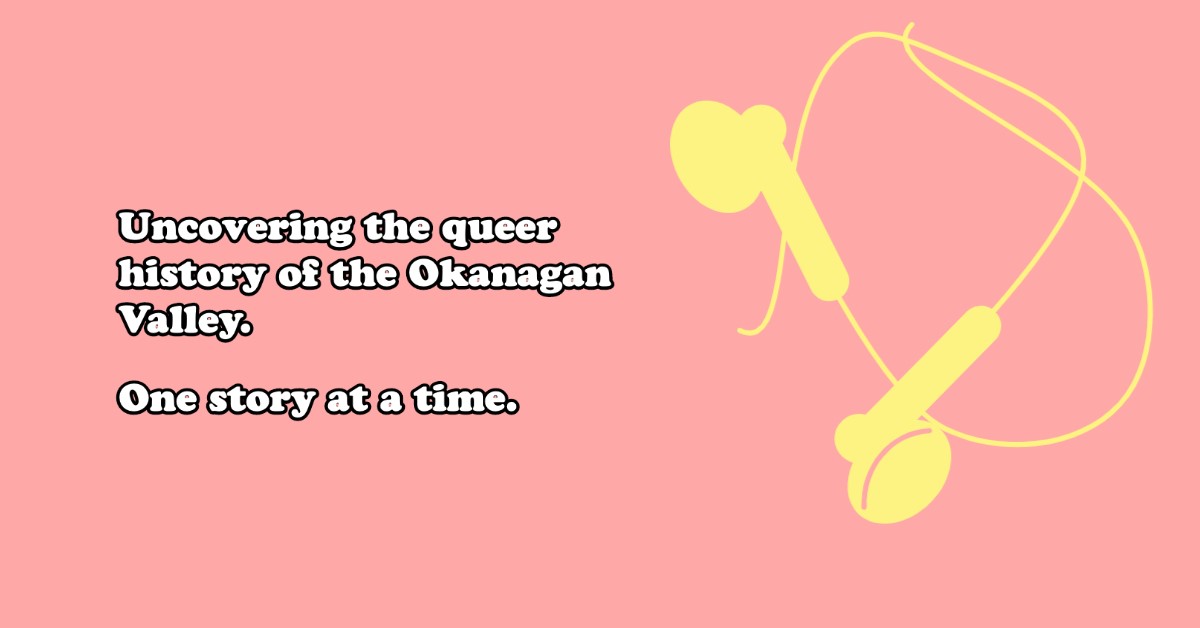
LGBTQ+ History Month
October is LGBTQ+ History Month in Canada, the United States, and Australia. Meanwhile, one local organization that fought against discrimination of the 2SLGBTQIA+ community members was the North Okanagan Gay and Lesbian Organization (NOGLO).
Socializing without fear
NOGLO was founded by Arne Kirkeby and his partner Chris, who arrived in Vernon in the 1990s. They wanted to become part of a community, and so through word-of-mouth organized a dance with other LGBTQ+ couples. The event provided a place for Vernonites to socialize without fear and was a major success, with around 300 attendees. More events would follow in the coming years.
In 2013, NOLGO embarked on a number of projects to raise funds for community events, including a garage sale and the production of a business directory. These projects helped support events like a Halloween Howl later that year, hosted in memory of Chris and other NOGLO members who had passed away. Prizes were offered for the most creative individual and group costumes.
YouthGlo

Brian Webb, a former North Okanagan resident and board member of NOGLO, received the People Choice’s award in the 2012 competition of Mr. Gay Canada. Webb also served as a peer counsellor at YouthGlo, an organization dedicated to helping LGBTQ+ youth in the North Okanagan. In 2013, he founded HomoCulture, a leading online resource that attempts to increase awareness of the interests and values of the LGBTQ+ community across North America.
As for NOGLO, the organization later disbanded, but others have emerged to fill its void, including the Vernon Pride Community who worked tirelessly to host their first Pride event earlier this year. Two former NOGLO members, Dawn Tucker and Susan Armstrong, alongside Madeline Terbasket, will present how the lived experiences of the historically underrepresented 2SLGBTQIA+ community can have more Pride in Place in local museums, archives and other cultural institutions at the Vernon Museum on October 13. Click here to learn more.
To explore more of Vernon’s history, check out our other blog posts!
Gwyneth Evans, Research and Communications Coordinator


